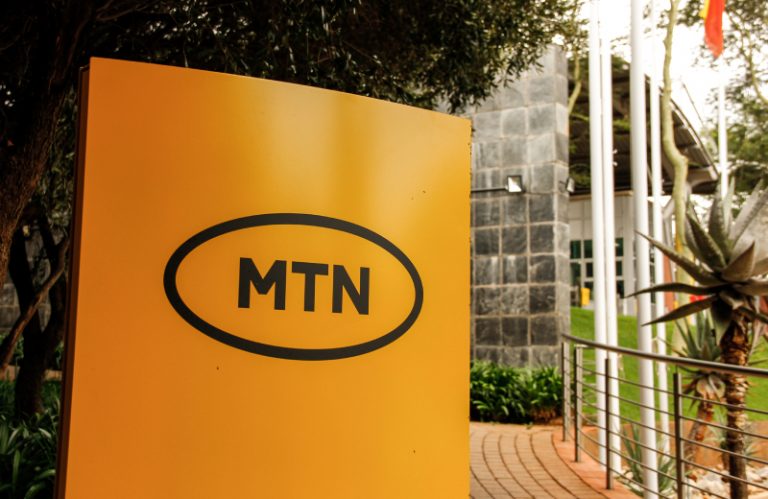
MTN Nigeria Communications Plc has released its financial results for the nine months ending September 30, 2024, revealing challenges, loss, and growth in certain areas.
The telecom giant reported a notable loss after tax of N514.9 billion, with a third-quarter Profit After Tax (PAT) of N4.1 billion. When adjusted for the net foreign exchange loss, PAT stood at N118.5 billion, marking a substantial 59.2% decline. This loss was primarily attributed to the persistent devaluation of the naira, with the N514.9 billion recorded reflecting a slight decrease from the N519.1 billion reported in the half-year results.
The telecom giant showed a 33.6% increase in service revenue, totaling N2.4 trillion. However, its subscriber base saw a decrease of 0.9%, dropping to 77 million. This reduction was primarily due to regulatory pressures, specifically the National Identity Number (NIN)-SIM linkage mandate, which required telecom providers to deregister non-compliant Subscriber Identity Module (SIM) cards.
Tekedia Mini-MBA edition 16 (Feb 10 – May 3, 2025) opens registrations; register today for early bird discounts.
Tekedia AI in Business Masterclass opens registrations here.
Join Tekedia Capital Syndicate and invest in Africa’s finest startups here.
Meanwhile, active data users grew by 5.1% to 45.3 million, demonstrating continued demand for internet connectivity amid digitalization trends. Yet, active mobile money (MoMo PSB) wallets dropped significantly by 21.8% to 2.8 million, indicating challenges in expanding financial service offerings under current economic conditions.
A detailed examination of MTN Nigeria’s operating metrics reveals further areas of strain. Earnings Before Interest, Tax, Depreciation, and Amortization (EBITDA) declined by 5.3%, totaling N860.2 billion, while the EBITDA margin dropped by 14.9 percentage points to 36.3%.
Commenting on the financial outcome, MTN Nigeria’s CEO, Karl Toriola, referred to the company’s performance as “resilient” in the face of macroeconomic and regulatory challenges. He acknowledged the significant impact of inflationary pressures and exchange rate depreciation on operational costs, describing the environment as “persistently challenging.”
“In the first nine months of 2024, we sustained the growth in our underlying operating performance—underpinned by our resilient business model and operational agility—despite challenging conditions,” Toriola noted.
He explained that average inflation rates reached 32.8% during this period, up from 24.5% in the previous year. He highlighted the steps taken by the Central Bank of Nigeria (CBN) to counter inflation, including raising the Monetary Policy Rate (MPR) by 8.5 percentage points to 27.25%.
Although this monetary policy adjustment helped to stabilize the forex market, it resulted in increased funding costs and squeezed consumer purchasing power, directly affecting MTN’s business activity and the broader telecommunications market.
In an attempt to break even, MTN and other telcos have been pushing for regulatory approval from the Nigerian Communications Commission (NCC) to review and increase tariffs on calls and data, which could allow the company to offset some of the cost impacts from the naira’s devaluation and inflation. However, the NCC has so far denied requests for a tariff review, citing Nigeria’s difficult economic conditions as a key factor in its decision. The regulator’s stance is rooted in a concern for consumer welfare amid rising prices in nearly all sectors, leaving telecom companies like MTN to navigate these cost burdens without passing them onto the customer base.
To address short-term liquidity needs and manage the operational costs posed by currency depreciation, MTN Nigeria has announced plans to issue a new series of commercial papers (CP). The company aims to raise N50 billion under its N250 billion Commercial Paper Issuance Programme, as detailed in its notification to the Nigerian Exchange Limited and the public. This move is intended to bolster MTN Nigeria’s short-term working capital while diversifying its financing base, allowing the company to tap into the debt market as a more flexible source of funding to meet immediate financial obligations.
The naira’s depreciation has notably affected MTN’s ability to maintain its previous dividend levels for shareholders. In 2023, the company recorded a net foreign exchange loss of N740.4 billion, a staggering 805% rise from 2022, when forex losses stood at N81.8 billion. This sharp increase in foreign exchange losses was compounded by the CBN’s decision in June 2023 to end its multiple exchange rate policy, floating the naira. This move saw the exchange rate surge from N461.1 per dollar in December 2022 to N907.1 per dollar by December 2023, a change that placed immense pressure on MTN and other foreign revenue-dependent entities.
Looking forward, MTN Nigeria is expected to continue navigating these economic and regulatory headwinds, focusing on strategies to improve operational efficiency and streamline costs. Toriola reiterated the company’s commitment to expanding its commercial operations while addressing inflationary impacts on consumers’ spending power.



